#african language
Explore tagged Tumblr posts
Text
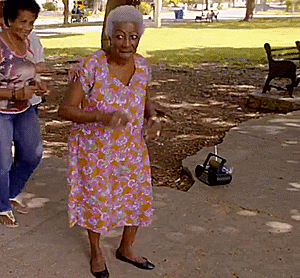
#Cuba#Nigerian#african#afrakan#kemetic dreams#africans#brownskin#brown skin#afrakans#african culture#afrakan spirituality#african landscape#African language#Cuban language#spainish#lucumi#Yoruba#epic video
225 notes
·
View notes
Text
I know i said i want to do only Dangme this year but now Ghanaian Sign Language is flirting with me. I mean ❤️❤️❤️
I think i could combine them. Like anki cards with Dangme and sign language. Would that be smart or what? Has someone done sign language combined with other language for vocabulary learning? Did it work?

#GSL#ghana#Ghanaian sign language#sign language#rare languages#African language#language learning#langblr
13 notes
·
View notes
Text

Table of the particles (ʔ)e, re, and (-ʔ)o in a number of African languages with description of the function(s) related to clause type marking in each language: vocative (VOC), imperative (IMP), interrogative (INTER), declarative (DECL) or subordination (SUB).
Fehn, Anne-Maria. 2024. “K’ui tii ‘Don’t speak!’ – Morphology and syntax of commands in Ts’ixa (Kalahari Khoe) and beyond”, Linguistique et langues africaines [Online], 10(1). URL: http://journals.openedition.org/lla/13288; DOI: https://doi.org/10.4000/123pu
#african language#Anne-Maria Fehn#clause#syntax#morphology#particles#Linguistique et langues africaine#linguistics#2024#Khwe#Ts'ixa#Shua#Tshwa#G|ui-G||ana#Naro#Nama#Hai||om#!Ora
11 notes
·
View notes
Text
Nta means twin.
Nta in the Akan language means twin. Two or more, and from here comes the English word inter.
Interview. Inter-nation(al). Intertwine etc.
2 notes
·
View notes
Text
Duolingo Sucks, Now What?: A Guide
Now that the quality of Duolingo has fallen (even more) due to AI and people are more willing to make the jump here are just some alternative apps and what languages they have:
"I just want an identical experience to DL"
Busuu (Languages: Spanish, Japanese, French, English, German, Dutch, Italian, Portuguese, Chinese, Polish, Turkish, Russian, Arabic, Korean)
"I want a good audio-based app"
Language Transfer (Languages: French, Swahili, Italian, Greek, German, Turkish, Arabic, Spanish, English for Spanish Speakers)
"I want a good audio-based app and money's no object"
Pimsleur (Literally so many languages)
Glossika (Also a lot of languages, but minority languages are free)
*anecdote: I borrowed my brother's Japanese Pimsleur CD as a kid and I still remember how to say the weather is nice over a decade later. You can find the CDs at libraries and "other" places I'm sure.
"I have a pretty neat library card"
Mango (Languages: So many and the endangered/Indigenous courses are free even if you don't have a library that has a partnership with Mango)
Transparent Language: (Languages: THE MOST! Also the one that has the widest variety of African languages! Perhaps the most diverse in ESL and learning a foreign language not in English)
"I want SRS flashcards and have an android"
AnkiDroid: (Theoretically all languages, pre-made decks can be found easily)
"I want SRS flashcards and I have an iphone"
AnkiApp: It's almost as good as AnkiDroid and free compared to the official Anki app for iphone
"I don't mind ads and just want to learn Korean"
lingory
"I want an app made for Mandarin that's BETTER than DL and has multiple languages to learn Mandarin in"
ChineseSkill (You can use their older version of the course for free)
"I don't like any of these apps you mentioned already, give me one more"
Bunpo: (Languages: Japanese, Spanish, French, German, Korean, and Mandarin)
#EDIT: Added a great resource for ESL and African languages that weren't found elsewhere#I do NOT recommend memrise and will talk about it another day but#langblr#duolingo#duo#language learning#language learning apps#mandarinblr#resource#reference
78K notes
·
View notes
Text
The Great Dinka Tribe of South Sudan: Culture, History, and People
The Resilient Dinka Tribe of South Sudan The Dinka represent the largest ethnic group and tribe in South Sudan, concentrated along the banks of the White Nile River basin numbering around 4.5 million people. As cattle herders whose way of life revolves around their cows, the Dinka have preserved a resilient culture centered on their ancestral Nilotic language passed through generations. However,…

View On WordPress
#African language#cattle herding#Dinka people#Dinka tribe#displacement#indigenous religion#migration#Nilotic culture#South Sudan#traditional lifestyle
0 notes
Text

99.9% certain that this is going to be the Spider Anansi, the West African folklore character associated with storytelling and trickery

here, the Doctor is wearing African clothes, in a place that seems like it’s somewhere in Africa
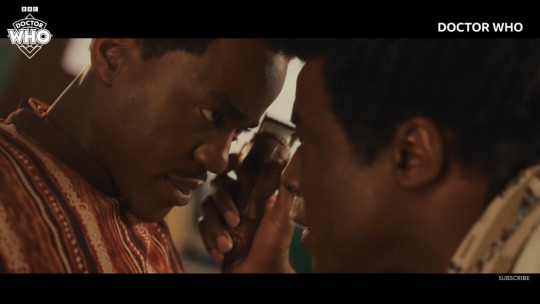
same episode; the man is saying to the Doctor “you need to tell a story”
#rope; weaving; web themes again. my favourite#the doctor-as-Loki; doctor-as-Anansi; Doctor-as-postmodern-narrator; as the storyteller and the story#God of stories innit. we can take Marvel and make it better#don’t disappoint PLEASE don’t disappoint#dw#doctor who meta#doctor who trailer#doctor who series 15#doctor who#fifteenth doctor#ncuti gatwa#african mythology#anansi#:)#doctor who season 2#language of rope
918 notes
·
View notes
Text
Black English is being misidentified as Gen Z lingo, speakers say
Samantha Chery, The Philadelphia Tribune, 18 August 2022
As Generation Z influencers and Black entertainers continue to shape the internet landscape, from viral memes to TikTok dances, AAVE has shown up in more online spaces. But some Black AAVE speakers believe that the language has been incorrectly chalked up as new vocabulary started by young people - and they've been calling out non-Black people for glorifying internet stars who butcher the speech and lack understanding of the language's cultural significance.
Read the article here.
#linguistics#language#aave#aae#african american english#african american vernacular english#black english
787 notes
·
View notes
Text
Naming International POC Characters: Do Your Research.
This post is part of a double feature for the same ask. First check out Mod Colette's answer to OP's original question at: A Careful Balance: Portraying a Black Character's Relationship with their Hair. Below are notes on character naming from Mod Rina.
~ ~ ~
@writingraccoon said:
My character is black in a dungeons and dragons-like fantasy world. His name is Kazuki Haile (pronounced hay-lee), and his mother is this world's equivalent of Japanese, which is where his first name is from, while his father is this world's equivalent of Ethiopian, which is where his last name is from. He looks much more like his father, and has hair type 4a. [...]
Hold on a sec.
Haile (pronounced hay-lee), [...] [H]is father is this world’s equivalent of Ethiopian, which is where his last name is from.
OP, where did you get this name? Behindthename.com, perhaps?

Note how it says, “Submitted names are contributed by users of this website. Check marks indicate the level to which a name has been verified.” Do you see any check marks, OP?
What language is this, by the way? If we only count official languages, Ethiopia has 5: Afar, Amharic, Oromo, Somali, & Tigrinya. If we count everything native to that region? Over 90 languages. And I haven't even mentioned the dormant/extinct ones. Do you know which language this name comes from? Have you determined Kazuki’s father’s ethnic group, religion, and language(s)? Do you know just how ethnically diverse Ethiopia is?
~ ~ ~
To All Looking for Character Names on the Internet:
Skip the name aggregators and baby name lists. They often do not cite their sources, even if they’re pulling from credible ones, and often copy each other.
If you still wish to use a name website, find a second source that isn’t a name website.
Find at least one real life individual, living or dead, who has this given name or surname. Try Wikipedia’s lists of notable individuals under "List of [ethnicity] people." You can even try searching Facebook! Pay attention to when these people were born for chronological accuracy/believability.
Make sure you know the language the name comes from, and the ethnicity/culture/religion it’s associated with.
Make sure you understand the naming practices of that culture—how many names, where they come from, name order, and other conventions.
Make sure you have the correct pronunciation of the name. Don’t always trust Wikipedia or American pronunciation guides on Youtube. Try to find a native speaker or language lesson source, or review the phonology & orthography and parse out the string one phoneme at a time.
Suggestions for web sources:
Wikipedia! Look for: “List of [language] [masculine/feminine] given names,” “List of most common [language] family names,” “List of most common surnames in [continent],” and "List of [ethnicity] people."
Census data! Harder to find due to language barriers & what governments make public, but these can really nail period accuracy. This may sound obvious, but look at the year of the character's birth, not the year your story takes place.
Forums and Reddit. No really. Multicultural couples and expats will often ask around for what to name their children. There’s also r/namenerds, where so many folks have shared names in their language that they now have “International Name Threads.” These are all great first-hand sources for name connotations—what’s trendy vs. old-fashioned, preppy vs. nerdy, or classic vs. overused vs. obscure.
~ ~ ~
Luckily for OP, I got very curious and did some research. More on Ethiopian & Eritrean naming, plus mixed/intercultural naming and my recommendations for this character, under the cut. It's really interesting, I promise!
Ethiopian and Eritrean Naming Practices
Haile (IPA: /həjlə/ roughly “hy-luh.” Both a & e are /ə/, a central “uh” sound) is a phrase meaning “power of” in Ge’ez, sometimes known as Classical Ethiopic, which is an extinct/dormant Semitic language that is now used as a liturgical language in Ethiopian churches (think of how Latin & Sanskrit are used today). So it's a religious name, and was likely popularized by the regnal name of the last emperor of Ethiopia, Haile Selassie (“Power of the Trinity”). Ironically, for these reasons it is about as nationalistically “Ethiopian” as a name can get.
Haile is one of the most common “surnames” ever in Ethiopia and Eritrea. Why was that in quotes? Because Ethiopians and Eritreans don’t have surnames. Historically, when they needed to distinguish themselves from others with the same given name, they affixed their father’s given name, and then sometimes their grandfather’s. In modern Ethiopia and Eritrea, their given name is followed by a parent’s (usually father’s) name. First-generation diaspora abroad may solidify this name into a legal “surname” which is then consistently passed down to subsequent generations.
Intercultural Marriages and Naming
This means that Kazuki’s parents will have to figure out if there will be a “surname” going forward, and who it applies to. Your easiest and most likely option is that Kazuki’s dad would have chosen to make his second name (Kazuki’s grandpa’s name) the legal “surname.” The mom would have taken this name upon marriage, and Kazuki would inherit it also. Either moving abroad or the circumstances of the intercultural marriage would have motivated this. Thus “Haile” would be grandpa’s name, and Kazuki wouldn’t be taking his “surname” from his dad. This prevents the mom & Kazuki from having different “surnames.” But you will have to understand and explain where the names came from and the decisions dad made to get there. Otherwise, this will ring culturally hollow and indicate a lack of research.
Typically intercultural parents try to
come up with a first name that is pronounceable in both languages,
go with a name that is the dominant language of where they live, or
compromise and pick one parent’s language, depending on the circumstances.
Option 1 and possibly 3 requires figuring out which language is the father’s first language. Unfortunately, because of the aforementioned national ubiquity of Haile, you will have to start from scratch here and figure out his ethnic group, religion (most are Ethiopian Orthodox and some Sunni Muslim), and language(s).
But then again, writing these characters knowledgeably and respectfully also requires figuring out that information anyway.
~ ~ ~
Names and naming practices are so, so diverse. Do research into the culture and language before picking a name, and never go with only one source.
~ Mod Rina
#asks#language#languages#linguistics#east africa#african#immigration#ethiopian#names#naming#research#resources#writeblr#character names#character name ideas#rina says read under the cut. read it
4K notes
·
View notes
Text

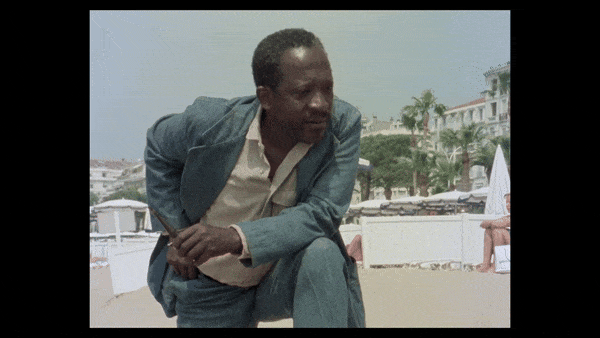
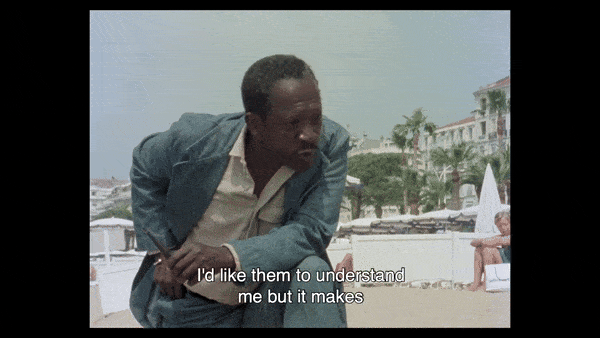
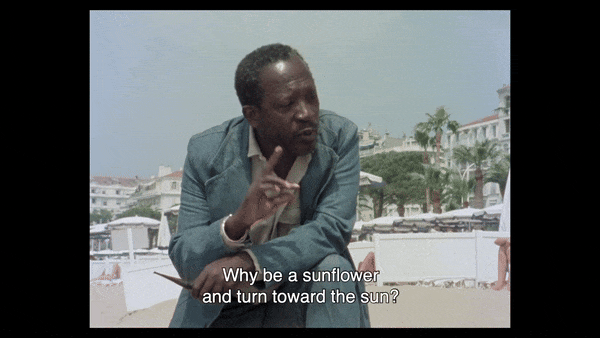
Ousmane Sembène, Caméra d'Afrique (African Cinema: Filming Against All Odds)
#quote#Ousmane Sembène#Ousmane Sembene#Sembène#Sembene#Africa#cinema#film#movies#Europe#colonialism#language#African cinema#Sembene Ousmane#Sembène Ousmane#sun#Senegal#film director
2K notes
·
View notes
Text

jɔlehi - boyfriends
#language learning#dangme#african languages#gadangme#languages#langblr#african language#rare languages#west african language#langlr#marauders#wolfstar#sirius#remus#sirius x remus
12 notes
·
View notes
Text

Dancing on the beach in The Gambia
972 notes
·
View notes
Text
Europeans Terrorised the World.
Europeans colonised the world they claimed, otherwise, civilised the world. In what ways did a people that maimed, stole, enslaved, and genocided cultures around the world, civilised it?
Our ancestors instituted it. So today if you go to China, Japan and Korea, they bow to greet and show respect or admiration to a person. This is our culture. We bow to greet and show respect or admiration to a person.
Chi ya wo.
It is to greet but actually means, bow before you.
I bow before you. Me (I) chi ya (greet) wo (you).
0 notes
Text
Natlan Live Symphony Performance | Genshin Impact
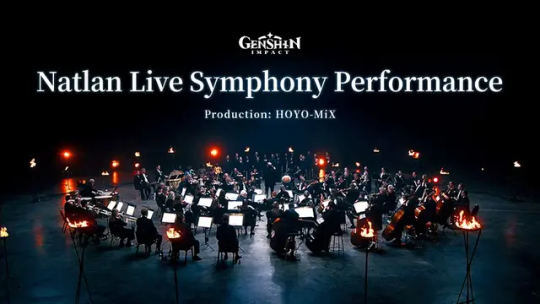
Conducted by Robert Ziegler, the Natlan Live Symphony Performance features the London Symphony Orchestra, London Voices choir, Vocal Shack choir, and top folk musicians performing two game soundtrack pieces produced by HOYO-MiX, "Natlan" and "Anthem of the Savannah."
A big thank you to TAKEOFF Studios for providing collaboration support, and to Stagecast for their support with filming and production.
youtube
#genshin impact#genshin impact updates#genshin impact news#official#genshin impact ost#natlan#dude the choir absolutely killed it#i hope they give the lyrics for all the other tracks with yoruba vocals because there are several of them#Youtube#or is that swahili... i get my african languages mixed up
179 notes
·
View notes
Text

#resident evil 5#resident evil#sheva alomar#tattoo simplified for my sanity (i did not feel like lettering)#did research out of curiosity though and was relieved to find adinkra symbols did originate in ghana/cote d’ivoire#even though the word ‘shujaa’ appears to come from swahili which is not really a west african language#they tried and they also totally didn’t - the story of re5 tbh
87 notes
·
View notes
Text
Not all Second-Language Speakers are Made Equal.
@waltzshouldbewriting asked:
Hello! I’m writing a story that features a character who’s first language is not English. He’s East African, specifically from Nairobi, Kenya, and is pretty fluent in English but it’s not his primary language, and he grew up speaking Swahili first. I’m struggling to figure out if it’s appropriate or in character to show him forgetting English words or grammar. From what I’ve researched, English is commonly spoken in Nairobi, but it wouldn’t be what was most spoken in his home. For context, this is an action/superhero type story, so he (and other characters) are often getting tired, stressed, and emotional. He also speaks more than two languages, so it makes sense to me that it would be easier to get confused, especially in a language that wasn’t his first. But I’m worried about ending up into stereotypes or tropes. For additional context: I’m monolingual, I’ve tried to learn a second language and it’s hard. A lot of how I’m approaching this comes from my own challenges correctly speaking my own, first and only language.
Diversity in Second-Language English
You seem to have an underlying assumption that second language acquisition happens the same for everyone.
The way your character speaks English depends on so many unknown factors:
Where does your story take place? You mention other characters; are they also Kenyan, or are they all from different countries?
Assuming the setting is not Kenya, is English the dominant language of your setting?
How long has your character lived in Kenya vs. where he is now?
What are his parents’ occupations?
What level of schooling did he reach in Nairobi before emigrating?
What type of school(s) did he go to, public or private? Private is more likely than you think.
Did his schooling follow the national curriculum structure or a British one? Depends on school type and time period.
Does he have familiarity with Kenyan English, or only the British English taught in school?
Is this a contemporary setting with internet and social media?
I bring up this list not with the expectation that you should have had all of this in your ask, but to show you that second language acquisition of English, postcolonial global English acquisition in particular, is complex.
My wording is also intentional: the way your character speaks English. To me, exploring how his background affects what his English specifically looks like is far more culturally interesting to me than deciding whether it makes him Good or Bad at the language.
L2 Acquisition and Fluency
But let’s talk about fluency anyway: how expressive the individual is in this language, and adherence to fundamental structural rules of the language.
Fun fact: Japanese is my first language. The language I’m more fluent in today? English. Don’t assume that an ESL individual will be less fluent in English compared to their L1 counterparts on the basis that 1) it’s their second language, or 2) they don’t speak English at home.
There’s even a word for this—circumstantial bilingualism, where a second language is acquired by necessity due to an individual’s environment. The mechanisms of learning and outcomes are completely different.
You said you tried learning a second language and it was hard. You cannot compare circumstantial bilingualism to a monolingual speaker’s attempts to electively learn a second language.
Motivations?
I understand that your motivation for giving this character difficulties with English is your own personal experience. However, there are completely different social factors at play.
The judgments made towards a native speaker forgetting words or using grammar differently are rooted in ableism and classism (that the speaker must be poor, uneducated, or unintelligent). That alone is a hefty subject to cover. And I trust you to be able to cover that!
But on top of that, for a second language speaker, it’s racism and xenophobia, which often lend themselves to their own ableist or classist assumptions (that those of the speaker’s race/ethnicity must be collectively unintelligent, that they are uneducated or low class due to the occupations where they could find work, or conversely that they are snobby and isolationist and can't be bothered to learn a new language). Intersections, intersections.
If you want to explore your experiences in your writing, give a monolingual English speaker in your cast a learning disability or some other difficulty learning language, whatever you most relate with. And sure, multilingual folks can occasionally forget words like anyone else does, or think of a word in one language and take a second to come up with it in the other language. But do not assume that multilinguals, immigrants, or multiethnic individuals inherently struggle with English or with multiple languages just because you do.
~ Rina
#asks#accents#speech#language#languages#bilingual#bilingualism#ESL#immigration#east africa#african#writeblr
2K notes
·
View notes